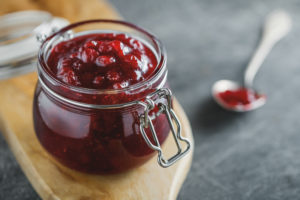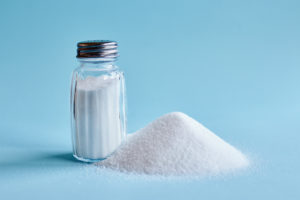Sources of Food Ingredients: Citric Acid
Citric Acid
- What is citric acid?
Citric acid is a natural, weak, organic acid that is found in many fruits and vegetables, especially citrus fruits.
- How is citric acid made?
Citric acid is inherent in many fruits, vegetables, and some living organisms, such as mold, through the citric acid cycle. It is also produced through microbial fermentation.
- Why is citric acid in my food?
Citric acids are used as flavor enhancers in beverages to balance the sweetness in drinks such as soft drinks, teas, and juices. Citric acids are also used as a preservative to prevent bacteria growth. Because of this property, citric acids are common in jams, jellies, candy, canned foods, and even meat products as preservatives. It is a dry alternative to lemon juices or vinegar in seasoning salts, flavoring powders, and crunchy snacks.
- What foods and beverages contain citric acid?
Common foods that contain citric acid include soft drinks, teas, juices, meats, jams, jellies, candy, canned foods, sea salts, flavoring powders, and crunchy snacks.
- Is citric acid permitted for use in the U.S. and in other countries?
Yes, citric acid is considered generally recognized as safe or GRAS in the United States.
- Can citric acid be used in foods marketed as organic, vegetarian, halal or kosher?
Yes, citric acid, a weak acid found in citrus fruits, may be used in organic and vegetarian products. Citric acid may be certified kosher and halal allowing its use in kosher and halal products.
- How does citric acid benefit my health?
Citric acid can be used in products which revitalize skin, soothe sore throats, and curb nausea.
- What other benefits does citric acid provide?
It can act as an acidity regulator. Acidity regulators affect your metabolism. It also benefits in the production of medicines and the manufacturing of inks and dyes.
- Why is citric acid necessary in foods and beverages?
Citric acid is necessary in foods and beverages because it affects the metabolism and energy of all living things. It provides antioxidants, detoxification benefits, and is an additive used to enhance the taste of foods and soft drinks.
- How does the production and use of citric acid impact the environment?
Citric acid is an additive found in food and water. It biodegrades very easily in the environment. According to the EPA’s R.E.D Fact Sheet, citric acid shows no significant effects should be expected from its use.
- How does citric acid make food more affordable?
Citric acid can be used as a pesticide. It keeps crops clean and free of pests and can act as a preservative to increase the shelf life of foods for transportation and sale.
- Does citric acid contain genetically modified organisms (GMOs)?
A: Citric acid can be derived from multiple sources. Depending on the source – citrus fruits, mold, corn, etc. – citric acid can contain GMOs.
- Is citric acid safe for children?
Yes, citric acid is safe for children. Citrus fruits are made up of 10% citric acid by weight.
- How long has citric acid been used in foods?
Citric acid has been in foods since the start of the industrial citric acid production in 1890 by the Italian citrus fruit industry. Citric acid was discovered by the 8th century alchemist Jabir Ibn Hayyan, known as Geber in the western world. It was first isolated and crystalized in 1784 by a Swedish chemist named Carl Wilhelm Scheele.


